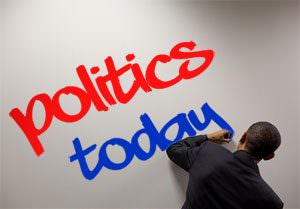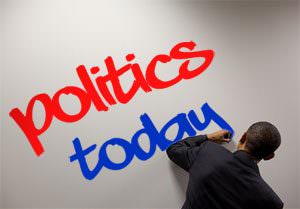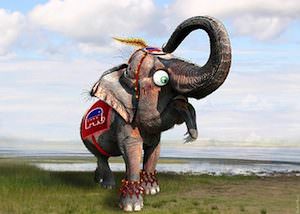The Debate Game: Obama Has a Lot to Lose
In this week's debate, Mitt Romney has too much to do. President Obama has a great deal to lose. Romney's is the most difficult position. Obama's is the most dangerous.In this week’s debate, Mitt Romney has too much to do. President Obama has a great deal to lose. Romney’s is the most difficult position. Obama’s is the most dangerous.
Romney needs to use the Denver encounter to reverse the slide he has found himself in since the party conventions. While Republican partisans claim that many of the public polls survey too many Democrats and are thus casting Romney as further behind than he is, the behavior of the Romney campaign suggests it does not believe this. Many of its recent strategic moves have smacked of damage control and appear to reflect an understanding that if the campaign stays on its current trajectory, Obama will prevail.
The most dramatic evidence was the decision to air a 60-second spot touting Romney’s compassion, clearly an effort to counter the disastrous impact of the leaked video showing the Republican nominee writing off 47 percent of the electorate. The former Massachusetts governor’s private words only reinforced months of advertising by Obama and allied groups portraying Romney as a wealthy, out-of-touch champion of the interests of the very rich. Recent polling in swing states has shown that this attack has stuck.
Most striking of all, a campaign that has been relentless in assailing Obama abandoned this approach for a moment in the compassion ad by having Romney declare that “President Obama and I both care about poor and middle-class families.” Challengers are always in a weak position when they have to hug their opponent for validation. This is a defensive move, a sign of how worried Romney is about Obama’s lead in the surveys as a friend of the middle class and the needy.
That’s why the debate is a strategic conundrum for Romney. On the one hand, he has to use it to change his image, particularly among women and the blue-collar white voters he needs to counter Obama’s overwhelming margins among African-Americans and Latinos. This sort of repair work takes debate time and energy away from Romney’s primary task, which is to put Obama on his heels about his record.
Romney will have to pull off this two-step at a moment when his campaign has been forced into a course correction. The polls suggest Romney is losing what he once thought were his biggest assets against Obama: Swing-state voters, albeit narrowly, now favor Obama as a future steward of the economy and are in a somewhat better mood about its condition. With Romney not certain he can count on the economy as the issue to power him through the campaign’s final weeks, he is scrambling to find other themes. This very process undermines the focus of his efforts and gives his argument a scattershot feel.
Paradoxically, Obama’s advantages over Romney create the president’s biggest debate challenge. He does not want to take great risks because he doesn’t have to. Above all, he wants to avoid a major blunder that would dominate the post-debate news and replace Romney’s problems and mistakes as the principal elements in the media’s narrative.
Yet concentrating too much on avoiding mistakes could itself prove perilous. An excessively cautious performance could give Romney an opening to take over the debate and make the president look reactive. If Romney showed one thing in the primaries, it is that he can be ferocious when faced with the need to dispatch an opponent. Recall the pummeling Romney gave Newt Gingrich in a Jan. 26 debate before the Florida primary.
And while guarding against any hint of passivity, Obama will have to avoid intimations of arrogance or overconfidence. Al Gore marred an otherwise strong night with his rather dismissive sighs during a 2000 debate with George W. Bush. If a comparable moment from Obama is what Romney will hope for from the debate, Obama’s aspiration is for a showdown in which he calmly, perhaps even amiably, maintains focus on the subjects that have consistently given Romney such trouble. Every mention of the number 47 will be a victory for Obama.
One of the shortcomings of the contemporary media environment is that while debates are supposed to be occasions when candidates thrash out matters of consequence thoughtfully and in detail, the outcomes are often judged by snippets that are more about personal character than issues or problems. Journalists, to invoke the most promiscuously deployed phrases, are forever in search of “defining moments” and “game-changers.”
By this standard, Romney very much needs that game-changer. Obama can live quite happily without one.
E.J. Dionne’s e-mail address is ejdionne(at)washpost.com.
© 2012, Washington Post Writers Group
Your support matters…Independent journalism is under threat and overshadowed by heavily funded mainstream media.
You can help level the playing field. Become a member.
Your tax-deductible contribution keeps us digging beneath the headlines to give you thought-provoking, investigative reporting and analysis that unearths what's really happening- without compromise.
Give today to support our courageous, independent journalists.






You need to be a supporter to comment.
There are currently no responses to this article.
Be the first to respond.